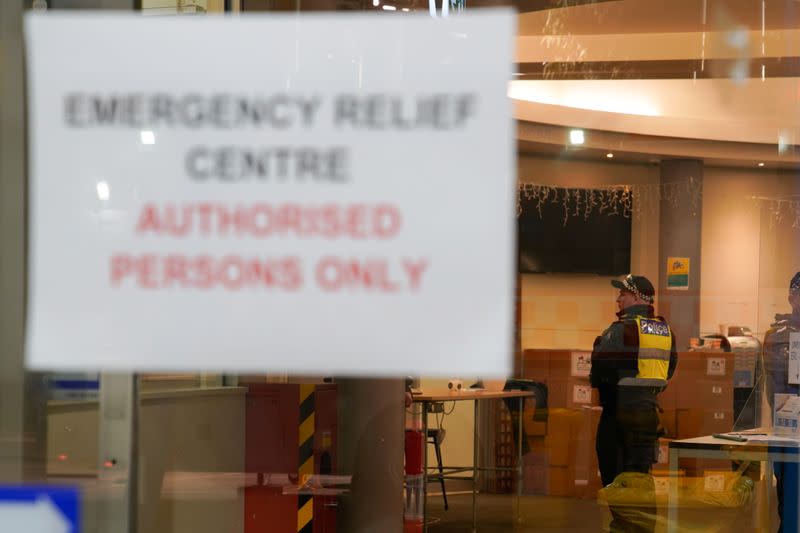Millions of Australians back in lockdown amid Melbourne virus outbreak
By Colin Packham and Byron Kaye
SYDNEY (Reuters) - Australia's second largest city, Melbourne, went back into lockdown at midnight on Wednesday, forcing five million Australians to stay home for all but essential business for the next six weeks to contain a flare-up of coronavirus cases.
State police were patrolling the city and setting up checkpoints on major roads to stop people heading out to regional areas and spreading the virus from what is now Australia's pandemic epicentre, with 860 active cases.
"The window for police discretion is very small and is closing as the threat to public health and safety created by those breaching the Chief Health Officer's directions is too great," Victoria police said in a statement.
Cafes, bars, restaurants and gyms which only recently reopened had to shut again. Police had no comment on whether anyone has been stopped or fined since midnight.
The renewed lockdown follows the closure of Australia's busiest state border, between Victoria and the most populous state New South Wales, on Tuesday night.
"The rest of the country knows that the sacrifice that you're going through right now is not just for you and your own family, but it's for the broader Australian community," Prime Minister Scott Morrison said.
Morrison said he would take a proposal to state and territory leaders on Friday to slow down the number of Australian citizens and permanent residents returning home from overseas. The two groups have been the only arrivals allowed since Australia closed its international border in March.
New Zealand announced on Tuesday its national airline will not take new inbound bookings for three weeks to reduce the burden on overflowing quarantine facilities.
In Australia, red flags have been raised by potential quarantine breaches that the Victorian state government believes led to returnees spreading the virus.
Melbourne is the capital of Victoria state, which reported 134 new infections on Wednesday, down from the previous day's record 191 but well over the low single digit daily increases elsewhere in the country.
Fears of a broader second wave were underscored by an official report of three new COVID-19 cases in the national capital, Canberra. Two of the infected people had returned from Melbourne last week and the third was their housemate.
In Sydney, authorities were scrambling to track down 48 passengers who were allowed to disembark a flight from Melbourne overnight without being checked for COVID-19 symptoms.
The resurgence of the virus and imposition of new containment measures will make it tougher for the government to get the economy back on its feet as it sinks into its first recession in three decades. Federal Treasurer Josh Frydenberg said the border closure and Melbourne lockdown would cost the economy up to A$1 billion ($700 million) per week.
BORDER CONTROL
Ahead of the lockdown, police checkpoints at the Victoria- NSW border caused delays of more than an hour for drivers, many of them daily commuters who live and work on either side.
Victoria's only other internal border, with South Australia, has been closed since mid-March.
Among the new COVID-19 cases in Melbourne on Wednesday were 75 occupants of nine public housing towers that were placed into complete lockdown last week, barring their 3,000 residents from leaving for five days.
Nationwide, Australia has reported about 9,000 COVID-19 cases and 106 deaths from the virus.
(This story corrects to remove quote on commuting delay that was erroneously attributed)
(Reporting by Byron Kaye, Colin Packham, Renju Jose and Sonali Paul; Editing by Jane Wardell and Kim Coghill)

 Yahoo News
Yahoo News 


